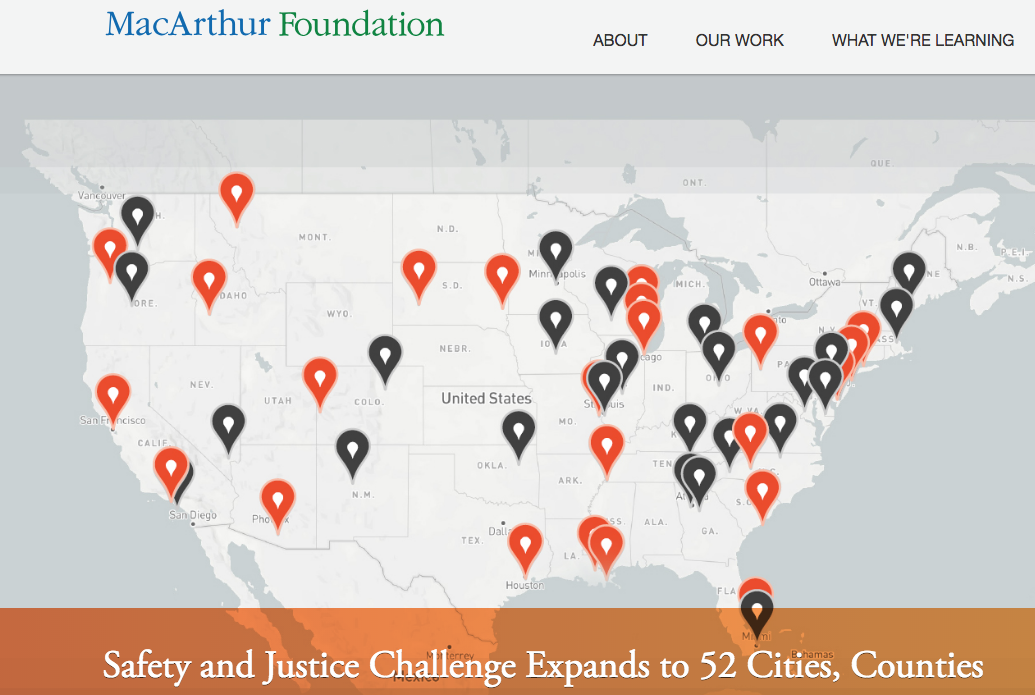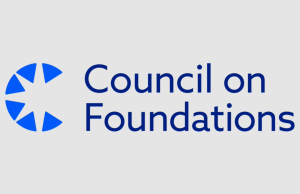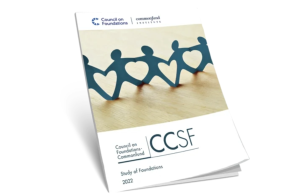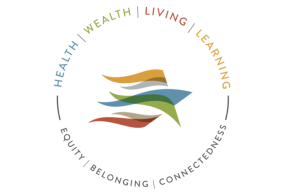The John D. and Catherine T. MacArthur Foundation in Chicago is adding $22 million in grants through its Safety and Justice Challenge, a national initiative to reduce over-incarceration by changing the way America thinks about and uses jails. The new funding will support 12 new cities and counties working to reduce incarceration and 13 sites already part of the growing national movement.
In three years, the Foundation has awarded more than $148 million to support a network of 52 cities and counties committed to criminal justice reform. Challenge sites across the country are seeing the impact of reforms designed to create fairer, more effective justice systems that protect public safety.
For example, since joining the initiative, Philadelphia has decreased its jail population by 36 percent and Cook County, Illinois by 26 percent. Three years after its launch, MacArthur’s Safety and Justice Challenge Network has grown into a collaborative of 52 cities and counties, across 32 states. The Challenge supports local leaders who are determined to tackle a fundamental driver of over-incarceration in America — the misuse and overuse of jails. Local leaders at each of the Challenge sites identify the causes of over-incarceration locally.
The Safety and Justice Challenge brings together many of the nation’s leading criminal justice organizations to work together to provide technical assistance and counsel to the jurisdictions: the Center for Court Innovation, Everyday Democracy, the Institute for State and Local Governance at the City University of New York, the Justice Management Institute, Justice System Partners, Nexus Community Partners, the Pretrial Justice Institute, the Urban Institute, the Vera Institute of Justice, Policy Research, Inc., and the W. Haywood Burns Institute.
“There is growing demand for criminal justice reform across the country, and local jurisdictions are leading the way,” said MacArthur’s Director of Justice Reform Laurie Garduque. “MacArthur is increasing our investment because we are seeing promising results and an appetite for more reform as evidenced by the diversity and creativity of the solutions implemented and tested across the Network. While progress is not always easy, and there is no single solution or quick fix, these jurisdictions are proving it is possible to rethink local justice systems from the ground up with forward-looking, smart solutions.”
The 13 Challenge sites are receiving additional funding to build on their promising work to eliminate unfair and ineffective or inefficient judicial practices that take a particularly heavy toll on people of color, low-income communities, and people with mental health and substance abuse issues. Their locally-driven strategies range from crisis intervention to behavioral health to pretrial release and supervision. Allegheny County, Pennsylvania is expanding defense representation and pretrial services, East Baton Rouge, Louisiana is developing a police-led diversion program, and San Francisco is instituting widespread implicit bias training.
“The initial MacArthur Foundation grant in 2016 was instrumental in allowing Philadelphia to push forward with reforms that have already made a difference, evidenced by a 36 percent decline in our jail population. This new award will allow us to expand the number of initiatives, enhance existing efforts, renew our focus on reducing racial and ethnic disparities, and ensure the permanence of this success,” said Philadelphia Mayor Jim Kenney. “More than anything, the new award will make Philadelphia a leading national example of criminal justice reform that will move us closer to the goal of a truly safe and just Philadelphia for decades to come.”
According to Assistant Sheriff Mitch Lucas of Charleston County, South Carolina: “We have been able to secure the right mix of people at the right time who are all committed to improving our local criminal justice system and making it more efficient, effective, and equitable. We have strengthened our ability to develop a more refined, data-guided approach to the reforms we’re implementing, and we want to build on that progress and continue improving as we move forward.”










